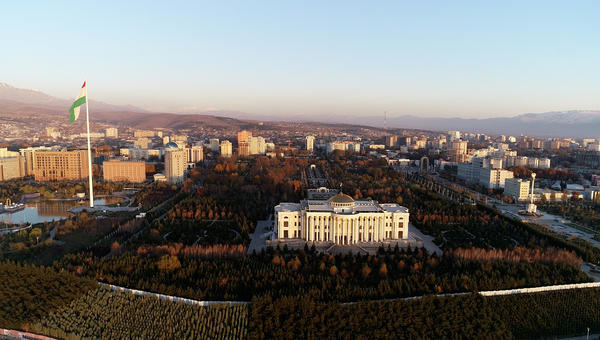FAQs – Renewable Energy for Resilient Agri-Food Systems (RERAS)
What is Renewable Energy for Resilient Agri-Food Systems (RERAS) project?
The Renewable Energy for Resilient Agri-Food Systems project has been working to increase agricultural productivity and ensure food and nutrition security by enhancing the use of reliable and affordable energy solutions for production, irrigation, processing, storing, packaging, and marketing of locally grown farm products. It does so by working with the provincial and local government, cooperatives, traders, and service providers to enhance their knowledge on use of modern technology for food production and sustainable food system management through capacity building and provisions for climate information, policies, finance, and farm research.
Who is the donor of this project?
This project is funded by the Royal Norwegian Embassy and UNDP.
What is the geographic coverage of the project?
The project is implemented in 3 Provinces, 6 Districts and 16 local governments
Karnali Province
- Mugu District
- Khatyad Rural Municipality
- Jumla District
- Chandanath Municipality
- Tatopani Rural Municipality
- Patrasi Rural Municipality
Jajarkot District
- Barekot Rural Municipality
- Nalgad Municipality
- Bheri Municipality
Rukum West
- Aathbiskot Municipality
- Sani Bheri Municipality
Sudurpashchim Province
- Bajura District
- Jagannath Rural Municipality
- Swamikartik Rural Municipality
- Himali Rural Municipality
- Budinanda Rural Municipality
- Budiganga Rural Municipality
- Treveni Municipality
Bagmati Province
- Sindhuli District
- Sunkoshi Rural Municipality
Who are the implementing partners of this project?
The project is being implemented by in partnership with LI-Bird, ICIMOD, WFP, Alternative Energy Promotion Center (AEPC-CREF) and the local governments.
What are the focus areas?
Food and nutrition security
Energy and food security nexus
Productive use of renewable energy
Resilient Agri-Food systems
Indigenous crops: millets, marsi rice and beans, fresh vegetables, fruits- apple, walnut, citrus
Mechanization of agriculture-gender responsive technologies
GESI and women empowerment
Enabling environment
What is food security?
According to the World Food Summit (1996), food security is defined as “when all people, at all times, have physical and economic access to sufficient, safe and nutritious food that meets their dietary needs and food preferences for an active and healthy life”.
There are four dimensions of food security:
- Availability of food – The availability of sufficient quantities of food of appropriate quality which is also determined by the level of food production, stock levels and net trade.
- Access to food – The access to adequate supply of food for a nutritious diet by individuals. Largely determined by price and income
- Utilization of food – The way the body makes the most of various nutrients in the food. The sufficient nutrient intake by individuals are the results of food preparation, diversity in food and food care and feeding practices. Depends on knowledge and food habit.
- Stability of the other three dimensions – The availability and access to adequate and nutritious food by all individuals at all times.
What is energy-water-food nexus?
With the continuous rise in global population, the demands on energy, water and food resources are also increased to sustain a healthy standard of living. The energy-water-food nexus concept was first discussed in the World Economic Forum in Davos, Switzerland in 2008 where it was initially identified as a crucial factor in tackling global development challenges. The nexus approach aims to enhance our understanding and systematically analyze interactions between the natural environment and human activities. It promotes coordinated management and use of natural resources across various sectors and scales. This approach helps identify and manage trade-offs, build synergies, and enables more integrated and cost-effective planning, decision-making, implementation, monitoring, and evaluation.
Why is water, energy and food nexus important?
Energy, food and water resources are interdependent and are closely linked to the quality of life for citizens of any nation. Different countries have different resources available depending on its geographic location and economic status. Therefore, it is essential for governments of all nations to secure energy, water and food resource for ensuring stability of its citizens.
Agriculture is the world's largest consumer of freshwater resources, and water is essential for producing most forms of energy. Global warming and climate change along with increased human activities are putting additional stress on water availability and quality. It is important to identify the nexus between water, energy and food and address the challenges for sustainable development.
How is the project using renewable energy?
The project supports in providing reliable and affordable energy solution in off-grid areas through rehabilitation of Micro Hydro Plants (MHPs). It also capacitates energy service providers for efficient management and operation of the schemes.
RERAS will incorporate the use of energy in the agriculture sector in a productive manner in every stage of the agricultural value chain, from production to consumption. Essentially, this involves using energy efficiently and effectively at each step of the process, including:
- Production: Support in construction of single stage and multistage lift irrigation, operation of farm machinery, tools and equipment; harvesting, reaping, insect pest repellent, use of AI-water and soil nutrient efficiency.
- Post harvest: Pre-cooling, threshing, de-husking, winnowing, grinding, milling.
- Marketing: Grading, packaging, branding, storage-cold storage, transportation.
- Consumption: Electric cooking.
What are the anticipated outcomes of this project?
Outcome 1: Households have enhanced access to enough food to meet their daily dietary needs.
Outcome 2: Renewable energy solutions play key role in improvement of agriculture value chains.
Outcome 3: Enabling environment to promote resilient food system is ensured through knowledge and capacity of value chain actors.

 Locations
Locations



